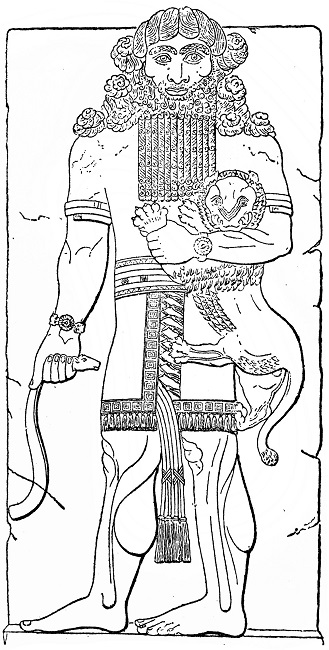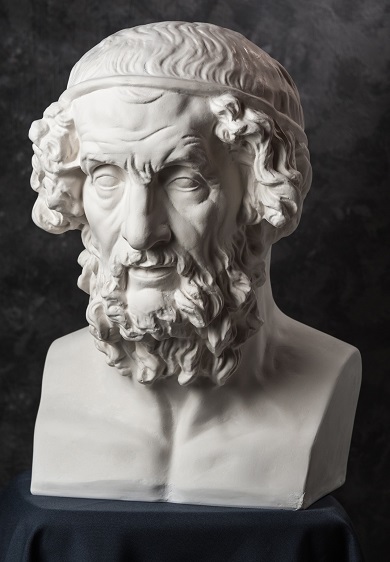Dec 23, 2025
Dec 23, 2025
Epics
Epic poetry is a form of account verse that tells the story of an adventure told by a legend. Usually, it is a long poem detailing the exploits, battles, and challenges of a hero. Epic poems are widely used to entertain, uplift, and share cultural values and ideas with audiences.
The antecedents of epic poetry may be traced to outdated city centers of India, Greece, and Italy among others. The Epic of Gilgamesh, a prehistoric Mesopotamian poem that chronicles the life of Gilgamesh, the ruler of Uruk, is the first known example of an epic poem. The poem is the earliest surviving piece of literature in the world and is thought to have been composed in the early 21st century BC. The Bible, the Odyssey, and the Aeneid are just a few of the subsequent literary works that have been greatly influenced by the Epic of Gilgamesh.
 Epic of Gilgamesh: Gilgamesh, a strong and haughty ruler who is challenged by the gods, is the subject of the epic. In order to understand the value of friendship and compassion, Gilgamesh is made to face his own mortality. The intricate and emotional poem tackles themes of love, grief, and the human condition. The Epic of Gilgamesh has been transformed into various films and television series and has been translated into many other languages. It is a great piece of writing that is still appreciated by readers and academics around the world. The poem is written in the ancient Mesopotamian writing style known as cuneiform. Twelve tablets make up the poem, each of which describes a separate section of the narrative. The poem uses strong narration and vivid imagery to great effect.
Epic of Gilgamesh: Gilgamesh, a strong and haughty ruler who is challenged by the gods, is the subject of the epic. In order to understand the value of friendship and compassion, Gilgamesh is made to face his own mortality. The intricate and emotional poem tackles themes of love, grief, and the human condition. The Epic of Gilgamesh has been transformed into various films and television series and has been translated into many other languages. It is a great piece of writing that is still appreciated by readers and academics around the world. The poem is written in the ancient Mesopotamian writing style known as cuneiform. Twelve tablets make up the poem, each of which describes a separate section of the narrative. The poem uses strong narration and vivid imagery to great effect.
The poem has received accolades for its understanding of human nature and its investigation of the topics of love, grief, and the human condition. The Bible, the Odyssey, and the Aeneid are just a few of the subsequent literary works that have been greatly influenced by the Epic of Gilgamesh. A particularly exceptional piece of literature that has withstood the test of time is the Epic of Gilgamesh. Readers and academics all across the world continue to enjoy this timeless and all-encompassing tale.
Here are some verses from the Epic of Gilgamesh:
"I am Gilgamesh, king of Uruk,
The first in battle, the strong one."
"I have seen the Underworld,
I have returned from death."
These two verses highlight Gilgamesh's strength and power, as well as his courage and determination. Gilgamesh is a warrior king who is not afraid to face any challenge. He is also a survivor, who has faced death and returned to tell the tale.
"Gilgamesh, where are you hurrying to?
You will never find that life for which you are looking.
When the gods created mankind,
they allotted death to mankind,
and life to themselves."
"I will make a lasting name ...
I will stamp my fame on men's minds forever."
Gilgamesh's pursuit of grandeur and immortality are the two main themes of the epic, which are nicely summarized in these two lines. Despite being a strong and ambitious ruler, Gilgamesh is nevertheless conscious of his own death. In order to make his mark on the world, he is determined to do big things. But in the end, he realizes that death is certain and that living a good life is the only path to true immortality.
Legendary poetry was a popular form of narration in ancient Greece. The Iliad and the Odyssey, both written by Homer, are two of the most well-known and beautiful epics in Greek literature. The Iliad tells the story of the Trojan War and its hero Achilles, and the Odyssey tells the story of Odysseus's journey home after the conflict.
 The Iliad: Epic poetry in dactylic hexameter, The Iliad, is credited to Homer. It is among the earliest pieces of Western writing still in existence and, after the Epic of Gilgamesh, the oldest piece of literature still in existence worldwide. The Trojan War, a ten-year siege of Troy by a coalition of Greek kingdoms, is when The Iliad is set. The poem recounts the conflict between the Greek general Agamemnon and the Greek hero Achilles. Odysseus, Hector, and Patroclus are just a few of the famous Greek heroes whose tales are told throughout the epic.
The Iliad: Epic poetry in dactylic hexameter, The Iliad, is credited to Homer. It is among the earliest pieces of Western writing still in existence and, after the Epic of Gilgamesh, the oldest piece of literature still in existence worldwide. The Trojan War, a ten-year siege of Troy by a coalition of Greek kingdoms, is when The Iliad is set. The poem recounts the conflict between the Greek general Agamemnon and the Greek hero Achilles. Odysseus, Hector, and Patroclus are just a few of the famous Greek heroes whose tales are told throughout the epic.
Love, sorrow, battle, and the human condition are all explored in depth in the intricate and emotional poem known as The Iliad. It is a tale that has been told and recounted for ages, and readers and academics all across the world continue to find enjoyment in it. Although it is thought that the Iliad was written in the eighth century BC, it may have drawn inspiration from older oral traditions. It is written in dactylic hexameter, a meter also seen in other ancient Greek poems like the Odyssey and the Aeneid, and is divided into 24 books, each of which relates a distinct section of the tale.
The opening lines of the Iliad are:
Rage - Goddess, sing of Rage, destructive force
That brings countless ills on mortals, driving
Some to throw themselves on spears in headlong lust
For fame and glory,
and for others brings Pain and destruction.
Sing to me of the man,
the son of Peleus,
Achilles swift of foot,
the poem will sing
Of his rage and of its bitter consequences
That brought countless ills on the Achaeans.
These lines set the tone for the poem, which is a story of war, loss, and revenge. The verses also introduce the central character, Achilles, who is a complex and tragic figure. Achilles is a great warrior, but he is also driven by rage and anger. His rage leads him to make choices that have disastrous consequences for himself and for others.
The Iliad has been hailed for its perceptions of human nature and its examination of the themes of love, loss, battle, and the human condition. It is also rich in vivid imagery and has a great narrative. It had a significant impact on the following literary works, such as the Bible, the Odyssey, and the Aeneid. It is a piece of writing that has lasted the test of time and is genuinely exceptional. Readers all throughout the world still find enjoyment in this ageless and all-encompassing tale.
The Odyssey: Another Greek epic by Homer is called "The Odyssey". It is regarded as one of the founding pieces of Western literature and chronicles the heroic journey of Odysseus (also known as Ulysses) following the Trojan War.
Odysseus is found abandoned on the island of Ogygia, where the nymph Calypso has been imprisoning him for seven years at the start of the tale. Odysseus sets out on a risky voyage back to Ithaca when the gods intervene and urge his release.
Odysseus encounters mythological animals, travels across perilous waters, and overcomes several obstacles on his adventure. He faces off against beasts like Scylla and Charybdis, a sea monster and whirlpool, as well as Polyphemus, the Cyclops. He also meets the sorceress Circe, who transforms his soldiers into pigs, and travels to the realm of the dead to consult the prophet Tiresias.
Penelope, the wife of Odysseus, battles suitors in Ithaca who want to wed her and rule over Odysseus' realm. Odysseus finally leaves Ithaca in disguise, reveals himself to his son Telemachus, and creates a strategy to get rid of the suitors with the aid of the goddess Athena.
"The Odyssey" examines themes of bravery, tenacity, loyalty, and the repercussions of both human and heavenly deeds. It also explores the complexity of human nature and the difficulties of going home after an extended absence.
Odysseus reunites with Penelope and reclaims his rightful throne as king of Ithaca at the epic's climax, bringing an end to his grueling and protracted quest.
Here are two verses from the opening lines of "The Odyssey" and serve as an invocation to the Muse, calling for inspiration to tell the epic story of Odysseus and his challenging journey.
"Sing in me, Muse, and through me tell the story
of that man skilled in all ways of contending..."
"Sing to me of the man, Muse, the man of twists and turns
driven time and again off course, once he had plundered
the hallowed heights of Troy."
Images (c) istock.com
20-May-2023
More by : Dr. Satish Bendigiri